Important Update:
BETH Patient Portal Closing by End of October 2025
We want to let you know that the BETH patient portal will be closing in the coming weeks.
After careful consideration, the Trust has decided to retire BETH for the following reasons:
Low usage – very few people are using the portal, High running costs – it’s expensive to maintain safely, Security and reliability concerns – it’s becoming harder to keep it secure and dependable
We understand this change may cause concern, but please be assured this decision was made to improve your overall experience. Our goal is to provide better, safer, and easier-to-use digital tools in the future.
Thank you for your understanding and continued support.
Stories
Staff taught me how to look after my baby

Susan has been a patient at the Mother and Baby Unit at Bethlem Royal Hospital at SLaM for the past three months. She was admitted with her son James, now five months, to receive treatment for a postnatal and mental illness.
The 31-year-old suffers from bipolar depression and, after a foster placement, she was referred to our nationally-renowned perinatal service.
In her own words the unit “kept her sane” and helped her form a good relationship with her son.
“This place really helped me,” she said. “The staff here have been great and they have helped me to form a better relationship with my son.
“I have a strong bond with him now and I think it is because of our care and treatment here. I have made good friends with other mothers and also with staff.”
Since Susan has been on the unit she has had the opportunity to join a number of classes and activities which she says have helped her to “feel better”. A range of activities are on offer at the Mother and Baby Unit, including art, music, woodwork, sewing and baby massage.
She said: “It has been great to spend time doing an activity I wouldn’t normally get involved in. I now have new hobbies to keep me busy which is great.
“The people here have taught me how to look after my baby. I am well now and can do so much more than I used to which is good for both James and myself.”
Since she was admitted to the unit Susan was looked after by a team of nurses, including nursery nurse Leigh Reed. Leigh said Susan’s improvement has been “incredible”. “She is really different now. Susan is much more willing to interact with staff,” she said.
“When she first came in the unit she was very full on with James, she would constantly be with him and was not able to leave him alone. Now she is more trusting and relaxed. It is really great to see how much she has improved and really fulfilling for us here.
“I have great hopes for her for the future.”
By Susan
Depression - looking to learn and move on
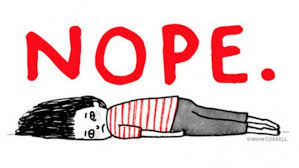
When Roisin was young, family problems and the subsequent breakdown of her parents’ relationship left her battling depression. She attempted suicide at the age of 14, which more recently she has realised was “more a cry for help” than actually wanting to die.
Subsequent family counselling didn’t really help as she had a difficult relationship with her stepfather, and Roisin - an A* student - started skipping school. This lead to her being dropped from GCSE subjects due to poor attendance, she lost her passion and drive for learning and missed out on a university place.
As she got older, Roisin made another attempt at counselling - this time by herself - but this didn’t work out either due to “inconsistencies” with her counsellor. Due to the fact that Roisin moved locations quite frequently, she struggled to access longer-term therapy.
She has recently been diagnosed with body dysmorphia, which affects her self-image and ties in with her depression, despite the fact that she also works as a model. She said: “People sometimes find it hard to understand that although I do take on work as a model, sometimes I look in the mirror and hate myself. “Occasionally I’m unable to look at myself at all without feeling sick. I think this shows just how changeable my condition is, and how easy it is for people to think that I’m an outgoing, happy person when in fact I’m depressed.”
For the past 10 months, Roisin has been seeing a psychotherapist and so far it’s going well. She said: “My therapist is brilliant, I can vent at her, whilst learning to differentiate between my thoughts and feelings. I’m also starting to get more self-confidence and realise that I am worth being treated and getting help. I think that that is often the problem for people with mental illnesses – they don’t realise they’re worth being helped.”
She also works with mental health campaign Time To Change, which aims to transform attitudes to mental health. She is a media volunteer, which means she has been involved with many of their public campaigns and has spoken about her experiences. As part of this, she writes blog posts and volunteers at a lot of their events, including encouraging members of the public to come and have a chat with her about mental health. She also took part in a photo shoot for Glamour Magazine’s ‘Hey, it’s okay’ campaign which encouraged people to be more open about depression.
She said: “I love doing it. I could talk about it until the cows come home because I think it’s so important. I’ve been all over the country and met loads of different people and made new friends.”
One of the messages that Roisin is keen to get across is that depression is not something that can be cured over a short period of time. She has recently had to leave her job “because of an inconsiderate and hurtful colleague” that she says her company “did little to help” her with. Fortunately, she has started a new job and is looking to learn and move on from past experiences.
She said: “People often think that because I’m so bubbly and happy that everything is fine, but it’s often overcompensation. Depression affects my life in a big way. I still get well meaning people who say things that make it clear they don’t see this as an illness and aren’t really sure what to say to me. They don’t realise that depression is because of a chemical imbalance, not just due to things that have or haven’t happened in a person’s life. It is a very real illness, I can’t ‘just snap out of it.’”
By Roisin
Opening up helped me deal with my mental illness
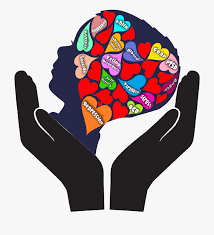
Everyone with a mental health problem is different. And each person opens up about it in a unique way. Up until last year AJ Stratton had not told anyone about her mental health problems and then she decided the best way to tell her story was through blogging and social media sites. This was a few months ago when she plucked up courage to speak out after suffering for many years. She says she doesn’t regret this as it was her way of telling everyone “in one go” and avoiding those inevitable “sympathetic looks”.
Now the 26-year-old is a volunteer for mental health charities and helps other people deal with the illness.
AJ’s problems developed when she was a teenager. After being physically and mentally abused by her step-mum between the ages of about eight to 11-years-old she started self-harming when she was 15. She has made multiple suicide attempts and been on and off various forms of prescribed medication.
“For years I just felt really flat or down,” she said. “I thought everyone felt that way until I realised that people do have down times but they have up times too. I just never experienced any ups. When I first went to see a doctor as an adult, 10 years after my problems began, I was prescribed medication and attended some group CBT (Cognitive Behavioural Therapy).
“It was quite strange to sit in a group after so long of keeping quiet about my problems. It did start to make me feel a bit better about my moods but it didn’t confront the reasons behind my problems.”
AJ works in IT and was having problems coping with everything. Her depression was still taking over everything else. Then she started having seizures and earlier this year was diagnosed with Developmental Trauma Disorder and Non Epileptic Attack Disorder (NEAD). Both were related to what happened to her in the past and how her brain processes the emotions. Developmental Trauma Disorder occurs when a child has to deal with complex traumas at a young age. NEAD is when epileptic-style attacks happen for psychological reasons rather than physical ones and these reasons could include thoughts, feelings and present and past experiences.
“Everything from my past then came out and I had a breakdown in January,” she said. “I was blacking it all out before but then it all came out in one go and I couldn’t cope with it I suppose.
“Now I try and deal with it head on and confront what happened but it is really hard at times.”
AJ started more CBT sessions which she said were more helpful and then started following the Time to Change website, realising she wanted to join in with their mission to banish stigma. The national charity were calling for people who have suffered with mental health problems to take part in road shows to speak to the public and try to raise awareness.
AJ dramatically progressed to not really talking to anyone about her problems, to suddenly speaking to 48 people in one day.
“It was a really big step and very difficult but I am so glad I did it,” she said. “I was approaching complete strangers and trying to help them understand mental illness.
“Most people were really interested, a few looked at me as though I was from another planet. What was really surprising to me was that the people who were the most forthcoming were the elderly. They were really keen to know more and incredibly understanding whereas a few younger people didn’t seem bothered about finding out more.”
After the first Time to Change event, AJ wrote a blog and posted some information on Facebook and then told her mother.
This was the first time she had opened up to anyone in her life other than her partner about what she was experiencing.
“Some people think this is a strange way to communicate but for me it was the best way,” she said. “I didn’t want sympathetic looks or to see people’s reactions.
“This meant I did it all in one go and could move forward. I now write quite openly on social media sites and blogs as I see it as a way of coping and educating others at the same time.
“The main reason I speak out is because if I had sought help sooner, and been honest with myself, I wouldn’t have ended up with NEAD, a very scary side effect of mental health problems.
“I want to help stop others risking getting this condition, and by people understanding what MH conditions are like, and making MH normal to talk about, I am hoping that will achieve this.”
By AJ
I don’t have a disordered personality, but a loving one
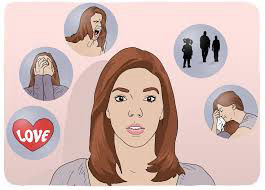
When I was diagnosed with emotionally unstable personality disorder/ borderline personality disorder earlier on this year there was a strange sense of relief. I finally knew what was going on with me. I knew that depression didn’t explain some of my symptoms. I had too much going on for that to be true. The symptoms include can include eating problems, impulsiveness, self-harm, mild psychosis, and hectic unstable relationships. All of these I experience at least 3 times a week.
However, the strongest of them all is intrusive thoughts and mood swings. These happen several times a day. These intrusive thoughts can range from, “you’re ugly”, “you should kill yourself”, “punch that person”, or my favourite “you’ve got a broken personality, you should just kill yourself”, these thoughts like to cover all bases. The worst of these however, are not the ones about myself, they are the ones that are about others or what others are thinking.
Thoughts like “he hates you”, “you acted so stupid, she probably thinks you’re an idiot”, “why did you say that? you probably upset her”. These ones lead me to have horrific anxiety and this just adds to my likelihood of mood swings. Moving onto the mood swings, these can happen every hour or half an hour. They happen regularly and are intense.
One thing about BPD is that the emotions we feel are extremely intense, if I’m happy then I am “bouncing off the wall” happy, if I’m angry I’m “punch a wall and scream” angry, sad then it’s “lets jump off a bridge”. There is no balance, it’s all extreme, weirdly enough though most of these feelings always result into the same thing and that is suicidal feelings.
These mood swings can often lead to a misdiagnosis of bipolar disorder. The difference is bipolar mood swings seem to take place over periods of months, whereas BPD mood swings change rapidly within hours and don’t just consist of mania and depression.
Now anyone reading this probably thinks with these intrusive thoughts that I’m a danger, but even though I have the thought to punch that person I’m not going to, or even if I have that thought to shout at someone I’m not going to. Chances are I’m not going to hurt anyone else, just myself. I have too much guilt to hurt another.
There are different types of “borderlines” and I’d be described as “quiet borderline” due to the way I act inwards rather than outwards. I have impulsive actions to hurt myself and to do self-destructive things. I have never been sectioned and I’m grateful for that but I completely understand how it can happen to others.
There’s a positive to having such intense emotions, and that’s because if I am doing something I’m passionate about I’ll give it my all. When I do volunteering or my job working with young people, I put all my heart into it. I get a high that is just incredible and feel absolutely on top of the world. Us borderlines are amazing. We love strong, feel intensely, and live on another level. I do not have a disordered personality, I have a loving one.
By Abbie
Surviving Depression and Suicidal Thoughts
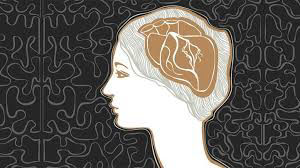
When I was 15 years old, I experienced my first depressive episode. I felt unable to leave the house or see friends as the depression brought about an increase in anxiety. My parents looked after me as best they could and I was taken to see an adolescent psychiatrist who put me on anti-depressants coupled with therapy. I gradually got better again with time and managed to do well in my exams.
I was eventually hospitalised voluntarily after more periods of illness and at 16 years old, diagnosed with bipolar affective disorder. Understandably, the diagnosis changed my life. I am now 28 and have been taking medication since then. Not long ago, I survived a suicidal depression that I had in the winter of 2013, 6 months before I went into hospital.
At this time, it was apparent that for several years my medication was not controlling my low moods. I would get really depressed very quickly, feel overly emotional when stressed and felt like I had to hide myself away. I began sleeping too much to escape the inner turmoil and to get respite. Sleep became my balm and escape.
However, it was when I began sleeping from 9-5 pm with a quick break for food, not getting washed and dressed or answering my phone and not being able to get in to work, that the psychiatrist was called to the house to see me.
I remember crying and crying- in such pain in my mind. For me, the depression felt so chemical- I knew I needed to change my medication but I didn’t know why everything felt like ‘wading through treacle’. Why couldn’t I find the joy in life anymore, I asked myself? I just couldn’t cope with the painful negative thoughts and feelings and started thinking irrationally that I would be better off not here in the world.
These suicidal thoughts were extremely challenging to deal with. I was so scared by them that I would tell my parents constantly how I was feeling. I wanted to get the thoughts out my head and so telling people became my salvation- I believe if I had bottled it up, I may not be here today.
Eventually, over time, my medical team worked together to put me on the right medication- Lithium. The Lithium has changed and saved my life. My brain chemistry is stable; I no longer feel suicidal or depressed. I get up early in the morning and I want to do things with my day. This took a long time but to anyone feeling suicidal- please reach for help.
You can get better- it is your brain playing tricks on you with an illness. I want to spread a message of hope, recovery and survival- life can be dark but if you hold on there is hope.
By Rose
Nikki - Overcoming Depression

Nikki, 29, suffered in silence with depression for more than 10 years. Now she is an ambassador for mental health charities and her aim is to raise awareness among as many people as possible.
When Nikki was 13 she knew she was “different” to other children. She couldn’t relate to her peers. She spent endless hours in her bedroom by herself every evening thinking nobody loved her. She was aware she was depressed but had absolutely no idea what to do about it.
To make matters worse, Nikki’s dad suffered from clinical depression and she had seen how it had consumed him, almost destroyed family relations and - worse still - how many people had negatively reacted to him and effectively turned against him when they found out about his mental illness. Nikki was resolute that she would not be treated in the same way as her dad so she vowed not to tell anyone, which resulted in her having to confront her illness on her own - for more than a decade.
Nikki said: “I was very normal in front of people and at school. I worked hard, had a lot of friends and was bubbly. But inside I did not feel right. I would get home from school and just go to my room, sit there and feel unloved.
“Unjustifiably I felt my family would not care if I died. I felt lonely and isolated and this went on for far too long.”
The endless depression and the perpetual isolation culminated in a number of overdoses. She didn’t ever intend to commit suicide - she said she didn’t want to die - but she could not think of any other way of dealing with her depression.
Overdose
The 29-year-old took her first overdose at the age of 13. Remarkably nobody ever found out and she got away with a stomach ache and nausea.
One of Nikki’s strengths is also, ultimately, a weakness in terms of her mental health - she has always remained strong and supportive of others but this meant people always believed she was strong and rarely asked her how she actually was.
“My dad was diagnosed with depression when I was younger and, after seeing how he was treated by people, I point-blank didn’t want to talk about it,” she said. “My dad was a kind, carefree man but when he suffered depression he was a different person.
“He was a pastor of a local church and I saw how much he did for people but when they found out about his depression these people were nowhere to be seen. He was alone except for mum. It felt as though everyone had turned on him and that made me so sure I was never going to let anyone find out about my depression. Ever. Especially my mum as I didn’t want to burden her with something else.”
Nikki’s depression drifted on in much the same way throughout her early adult life. She got good grades at school, went to parties and enjoyed studying but the depression was always bubbling away in the background.
She accepted a place at university to study criminology and sociology but she could never properly escape her mental health problems…which got worse when she was raped on her 19th birthday.
“It was then I could feel everything slowly closing in on me, suffocating me. I couldn’t escape it, or him, and I started to drown in my depression.”
“That made my depression much worse,” Nikki said. “I felt like a failure. And things were worse domestically because my dad’s illness was really bad at this point. I ran away and to make matters even worse nobody seemed to notice!”
What followed was years of depression which manifested itself in Nikki “rebelling”, drinking a lot with friends, going out a lot and trying to forget her troubles. The start of the turning point for Nikki was after she took her third overdose at the age of 23. This time s
he took more than on previous occasions and realised she needed desperate help. She called her family GP and said she needed immediate help. It was the first time she had ever spoken about her depression.
Seeking help
“It was a relief but it was also very, very strange,” she said. “I had kept my depression to myself for so long that it was almost as though it was tricking me too. So to suddenly talk about it was, in a way, liberating but also extremely scary.
“In my mind nobody had ever listened to me before and suddenly he was. It sort of validated me being alive. This was the start of what I see as my turning point. Not long after that I looked in the mirror and realised I did not want to let this take hold of me. I walked round the block, took a deep breath and never looked back.”
The most common question Nikki has been asked since being open about her mental health is how she managed to survive it without taking any medication or receiving any therapy. “It got to a point where I realised it was me or depression, and I had to reach deep down inside myself and find the inner strength to overcome it,” she said. “There is absolutely nothing wrong with taking medication, I just refused it because of the effects I saw in my Dad. It was not easy, and there were times when it felt impossible, but that’s how you know when you’re doing the right thing, because it’s hard.”
Nikki said her feelings of loneliness did not go away, they are still there but she “manages them”. “I know I have come a long way but sometimes I feel those really negative thoughts coming up on me again,” she said. “Then I check myself to stop it getting worse. I have managed to control it so far but it is not always easy because I am terrible at talking to people, I am a listener - I prefer to help with their problems rather than deal with my own.”
One of the motivators for Nikki over the past year has been her work as a very active volunteer for Time to Change, the national mental health charity on a mission to end discrimination. Nikki does presentations, talks to other people with mental illness and does all she can to promote awareness.
One of the downsides of speaking out about her illness is the reaction of some friends. She said even though many have been supportive there are some who just do not understand. Some of her friends thought she didn’t trust them because she didn’t tell them and she has to spend a great deal of time reassuring them that this is not personal.
“Awareness is so much better than it used to be and every day we are making progress,” she said. “But there is still a lot of ignorance and misunderstanding of mental illness and this can result in problems with family and friends.
“I think the next step is to give people a little help in terms of dealing with people coming out to them with a mental illness. One of the reasons people are not open about their illness is because they are scared of reactions and so the more people we educate, we inform, we get the message to, then the more they will understand how to treat someone with a mental illness.
In her own words, if she can just prevent one person going through the “10 years of hell” she went through, then she would have achieved her mission.
By Nikki
I hear voices but I have learnt how to deal with them
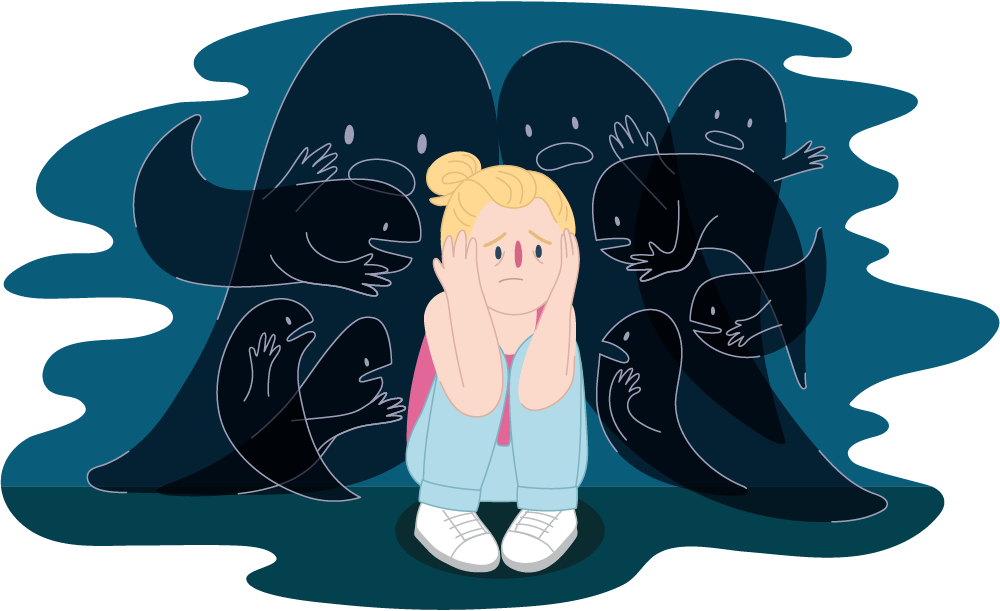
Rachel Waddingham leads a fulfilling and hectic life which involves juggling several posts, managing a London-wide mental health project, taking part in committees and speaking at conferences and events on mental illness
What makes this remarkable is that at any one time Rachel suffers from a symptom of psychosis which means she may hear several – sometimes conflicting – voices in her head. She has had to manage a total of 13 different voices in her head for the past 20 years.
The 35-year-old has an array of mental health conditions; she has been diagnosed with schizo-affective disorder and dissociative identity disorder as well as PTSD (post-traumatic stress disorder) and psychosis.
Rachel prefers not to label herself with any of these conditions and instead tells people she is a “survivor of trauma”.
“I suffered a number of traumas during my childhood,” she said. “One involved me being sexually abused.
“I kept this hidden for a long time which I think led to the psychosis. I started seeing visions when I was at primary school and by the time I was a teenager I felt convinced I was part of an alien experiment. Opening up and talking about it just didn’t seem possible”.
After a stint in a psychiatric hospital and years of prescribed drugs which she said left her feeling “groggy and demotivated” she embarked on a form of “talking therapy” and has not been on medication for the past four years.
Historically people with psychosis, schizophrenia and other associated disorders were not offered a talking therapy such as Cognitive Behavioural Therapy (CBT) because it was regarded as “dangerous” for them to talk about their condition. This old-fashioned view meant people were often given cocktails of drugs which never really dealt with underlying problems.
Rather than hinder her in her adult life, Rachel believes her experiences have actually assisted her in dealing with her everyday life. She works full time at Mind in Camden managing a network of support groups for people who are struggling with voices and visions, she trains mental health professionals – some at South London and Maudsley NHS Foundation Trust – and she has set up her own website called Behind the Label.
“The skills I have developed to manage my voices really help me in my work”, she said. “I hear voices all the time, so I’ve had to learn how to multi-task. The coping mechanisms that help me leave the voices in the background sometimes also help me focus when I need to meet a deadline. My conflict management and negotiation skills are as useful for the outer world as they are when dealing with some of my more aggressive voices”.
Rachel has in depth knowledge of mental health services and psychiatric hospitals – she spent eight months in one at her worst point – and uses this experience to help others deal with their problems. She manages the London Hearing Voices Project, based in Camden, and supports people to find ways of coping with distressing voices.
“Talking about problems is the best way to help healing,” Rachel said. “Before I was offered any talking therapy I felt really isolated. Then, when I first went to a Hearing Voices Group I realised that I was not some kind of monster. I wasn’t a freak. When I finally started art therapy, a few years ago, it was crucial to find someone who was able to help me work with my voices in more depth and heal from the traumas in my past.”
“I also talk to my husband and that helps too. I am a different person today because of this. If you met me 10 years ago this is a future that you would never have imagined for me.”
By Rachel
Gaining strength from relationships to talk about depression

n a time where many of us get a glimpse into each others lives via social media, it may be easy to assume someone’s life looks not only amazing, but they are extremely happy.
As I have experienced myself, it can take many years before someone feels able to speak openly about depression, and the daily struggles that go with it.
I feel fortunate to have grown up in a loving family, and with all the essentials needed to live a healthy life, as many in this world do not. But, on a daily basis the negative, destructive voices that project loudly between my ears are a constant.
As an endurance adventurer, my life online, and in the flesh, may look and sound amazingly perfect to many. But after suffering in silence for nearly a decade, it’s only been over the past 12 months that I have felt the courage and strength to speak openly about the darker side of my life, and the battle I constantly have with depression.
Summoning the strength
What has triggered this newfound strength? I mainly put it down to the constant relationships I have had with many friends and family members over the years. It’s been within these relationships where I’ve felt most comfortable, and after years of hiding my experiences away, the strength I have today from these relationships has enabled me to speak openly about what I go through.
One particular friendship has been quite unique, and helped me not only get through some difficult times, but has also encouraged me to enjoy life as well. Darrell and I have been mates for years now, he is someone who I’ve spent plenty of time laughing, joking, and chatting with.
There were several moments over the past few years when I was having some extremely dark thoughts, and although I never spoke specifically about the battles I was having, Darrell was simply around to listen, and chat when I needed. He knew me well, and would make me laugh easily as we share a very similar sense of humour, but at the same time, he’d know when it wasn’t time to joke, and would just listen.
Darrell was simply there for me, not 24/7, or every day even, but I knew that if I did need him, I could call to just chat about life, laugh at our own jokes, or enjoy a coffee together in each other’s presence. Knowing I had Darrell in my corner made me feel like I was needed on this planet.
Although I never opened up to him about my ongoing battle with depression for years, having someone to simply speak with about anything but the destructive conversations that were constantly going on in my head, was paramount to helping me eventually tell him, and others about what I have been experiencing.
Stay connected
My journey is far from over, but I would urge anyone who is suffering in silence to simply regularly meet up and chat with a close friend, or another human being, as having a connection with someone (from my experience) can go along way to helping anyone feel supported.
It doesn’t matter what it’s about, but just start a conversation with a person you have a relationship with, and you may begin to smile on the inside, as well as the outside.
By Luke
Life as a carer - seeing services steadily improving
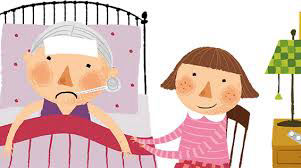
Jaya Kathrecha’s family life was knocked off course when her two sons were diagnosed with depressive illnesses in quick succession some ten years ago.
Jaya recalls becoming “frozen and completely powerless” as a result. Not knowing which way to turn for support, and struggling to come to terms with her sons’ conditions, she found herself slipping into depression.
“As a carer you don’t understand what to do, where to go for help, and you feel paralysed.”
Today, Jaya is a changed person. She has gained a wealth of practical experience, a good understanding of legislation and how to influence policy makers.
Jaya is one of the longest-serving elected members on SLaM’s Members’ Council and also sits on Lambeth’s decision-making board for health and social care. She combines these voluntary, unpaid posts with being a carer for her two sons, one of whom, aged 29, remains in the family home while his 30-year-old brother “lives independently but with support”, Jaya explains.
Looking back, she notes: “I saw many flaws in the system, which weren’t really supporting families, carers and service users. There was also a lack of awareness of mental illness, plus the stigma, discrimination and a lack of access to services and care in Lambeth.”
Jaya, who left her home in Mauritius as a teenager, to study in the UK, says she comes from a long line of ‘powerful women’. Both her parents were politicians. A self-proclaimed optimist, she is convinced services are steadily improving and welcomes government reforms that have given greater recognition to carers.
“You have to make a stand and say why you’re not happy. But I believe that if you want to make changes, you have to be positive and make them from within the system.”
“My sons function with my support. I have pushed along many lines - social and physical - and I believe that without my support they would be much worse off. I have also managed three community projects in a voluntary capacity, so I understand the many issues people face,” she says.
As well as pouring her energies into supporting her sons and pressing for better services, Jaya has learned she also needs to look after herself. Regular yoga practice and meditation have all proved very positive. She has also gained confidence as a public speaker through attending a King’s Fund leadership programme. The course fees were met through a community award that Jaya picked up in recognition of her voluntary activities.
Jaya has also been an advisor for the Department of Health, and met Prime Minister Gordon Brown at No 10. “There can be a positive side to caring - maybe if I wasn’t a carer I wouldn’t have done all these things.”
She speaks regularly about mental illness to many groups, some of whom share her south Asian origins. The stigma associated with mental health issues is, she is convinced, even greater among south Asians than among those brought up in the UK.
“I tell people they mustn’t be ashamed and that they shouldn’t be afraid to say there is mental illness in the family. But I do understand - you risk losing your friends, your social circle and there’s a huge impact on your emotional and physical wellbeing. I know because I have felt the isolation myself.”
“The south Asian and other Asian communities often wait until things are very, very critical before they ask for help. They don’t talk about the problem. But we are living in the 21st century and we all have to move with the times. We have to tell people that help, medication and counselling are available. I say to people: “There are lots of friends out there. You are never alone.”
Jaya’s top tips for carers
Seek help at an early stage
Don’t be ashamed of mental illness
Speak out if you think something is wrong
Take care of yourself with counselling and exercise
Keep in touch with your spiritual side
By Jaya
Skin picking - using dance to help turn my illness on its head

Liz developed a destructive habit from the age of eight years old. She would obsessively pick at her skin, sometimes until she bled. She now knows she was suffering – mostly in silence – from a condition called Compulsive Skin Picking (CSP), which blighted her life for more than 20 years.
She is now 36 years old, a successful artist, “in recovery” from her illness and bravely speaking out in an attempt to help others with the condition.
People with CSP find comfort, pleasure or emotional release from endlessly picking at their skin but this can often lead to bleeding, scarring and physical deformities, as well as emotional and mental issues.
Liz said: “Skin picking was, for me, a way to release tension but it became a vicious cycle that totally dominated my life. It also developed into something I did subconsciously so altogether there were hours and hours of a day where I would be picking my skin.
“Some nights I would pick until the early hours of the morning. Many times it would be in the bathroom because this was a private space. No one knew about it. I masked and covered the illness from those closest to me. One of the key issues I struggled with the most was the isolation caused by the shame I felt. I really did suffer in silence for a very long time.”
It’s estimated that 1 in every 500 people in the UK suffer from this disorder, also known as Dermatillomania.
As with all disorders in the OCD spectrum, most people develop CSP in their teens or early 20’s. It may start as a frequently carried out and unconscious habit which develops into uncontrollable picking. The illness can impact on every part of a person’s life and they can struggle with relationships, home-life and work but can invariably appear as though they are functioning and leading a “normal life”.
There is no known cause for the condition but many can develop habits during and after periods of anxiety or stress.
Liz is now a successful artist and manager at Trinity Laban Conservatoire for Music and Dance and attributes some of her work as helping her “turn her illness on its head”.
“For me the body is fascinating,” Liz said. “I slowly turned my illness into something else – through dance I was able to express things the body was capable of but turn it into something positive. It gave me a new visual language and a way to recover.
“I got to a point where I didn’t want this illness controlling me anymore. There were just perpetual cycles of shame, embarrassment and anxiety and I had no choice really but to try and help myself because it was destroying me.
“Skin picking didn’t just happen when I was anxious or stressed, it also happened when I was bored or tired. It dominated my life. I developed an understanding of the body through dance and have developed an artistic practice which has helped me to be in a place where I now have some degree of control over my condition. ”
Liz is now bravely speaking about her condition in an attempt to destigmatise and help others with this isolating condition who may feel they have nowhere to turn. She has recently exhibited a range of her work in a solo show at Bethlem Gallery, part of South London and Maudsley NHS Foundation Trust (SLaM) entitled My Singular Fascination.
The exhibition was launched to coincide with OCD Week, an initiative run by OCD Action to raise awareness and to dispel the myths of the condition. She also appeared on BBC Radio Woman’s Hour to talk about the condition.
Simon Darnley is a Principal Cognitive Behavioural Therapist and Head of the Anxiety Disorders Residential Unit. He said: “CSP only affects a small percentage of the population but it is a really serious condition.
“Sufferers can spend a long time picking their skin because they have such a low self-esteem but then they leave marks and scars so they spend a lot of time covering the marks up with make up and clothes. It is really self-perpetuating and debilitating. Liz is really brave to speak up about this because it is important that people realise they are not alone in dealing with this condition.”
By Liz


